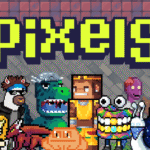The Japanese government has officially asked OpenAI to stop violating copyright laws due to concerns surrounding the company’s Sora 2 video generation model, which has been shown to produce clips featuring copyrighted characters from anime and video games, according to ITMedia.
Released on October 1, Sora 2 is capable of generating 20-second, 1080p videos with full audio. After its launch, social media platforms quickly filled with clips allegedly created using this tool, many of which showcased copyrighted characters from popular franchises such as One Piece, Demon Slayer, Pokémon, and Mario.
At a Cabinet Office press conference on Friday, Minoru Kiuchi, Japan’s Minister of State for Intellectual Property and AI Strategy, confirmed that the government had submitted an online request through the Cabinet Intellectual Property Strategy Headquarters. This request urged OpenAI to refrain from using Japanese-owned intellectual property without authorization. Kiuchi emphasized that manga and anime are “irreplaceable treasures that Japan proudly shares with the world.”
Other officials, including Digital Affairs Minister Masaaki Taira, expressed hope that OpenAI would comply voluntarily. However, they warned that if the situation remains unresolved, the government could invoke provisions of the Artificial Intelligence Promotion Act, which is set to take full effect on September 1, 2025.
The AI Promotion Act aims to position Japan as a leading nation in AI while ensuring ethical standards in its use. Although the law does not specify penalties for misuse, Article 16 empowers the government to investigate cases where citizens’ rights are violated due to inappropriate AI development or usage and to implement necessary countermeasures.
Japanese lawmaker Akihisa Shiozaki, from the ruling Liberal Democratic Party, commented on the issue on X (formerly Twitter), stating, “The launch of Sora 2 has once again raised the issue of AI and copyright. Japan has a responsibility to lead in setting rules for AI and intellectual property because we are a nation that has inspired the world through anime, gaming, and music.”
Meanwhile, Reuters reported on September 29 that OpenAI had contacted select studios and talent agencies a week before the launch of Sora 2, offering them the option to opt out of having their works used. It remains unclear whether major Japanese companies were among those contacted. Despite this outreach, the model’s ability to recreate the likeness of Japanese characters has led to significant backlash on social media, with criticism directed at both OpenAI and the Japanese government for their slow response.
In a blog post dated October 4, OpenAI CEO Sam Altman referred to the AI-generated clips as “interactive fan fiction.” He acknowledged the controversy surrounding the tool and promised upcoming changes to give rights holders greater control over how their characters can be used, including the option to completely opt out.
“We’ll provide rights holders with fine-grained control over character creation,” Altman stated. “We’re also giving them the ability to define how or if their characters can be used at all.”
Altman also addressed Japan directly, saying, “We deeply admire Japan’s extraordinary creative output and the bond between its users and cultural content.”
As of now, OpenAI has not issued an official response to the Japanese government’s latest request.
Earlier this month, Nintendo publicly denied claims that it was lobbying the government regarding AI regulation. In a rare statement, the company clarified that it had no involvement in any government discussions related to generative AI. Still, it emphasized that it “will continue taking necessary actions against copyright violations.”
Beyond Japan, major entertainment companies like Disney and Universal have already taken legal action against AI platforms, including Midjourney and Character.AI, accusing them of using protected characters without authorization.
“Many videos created with these characters would indeed infringe copyright,” said Mark Lemley, a professor at Stanford Law School. “By allowing this, OpenAI exposes itself to multiple potential lawsuits.”
Just last month, The Pokémon Company, known for its stringent legal protection, released a statement condemning the unauthorized use of its characters, including Ash Ketchum and the Pokémon theme song in a U.S. government video.
“Our company was not involved in the creation or distribution of this content,” a spokesperson stated. “No permission was granted for the use of our intellectual property.”
This growing backlash highlights the global tension between creative ownership and generative AI tools, and Japan’s response marks the first government-level intervention aimed at defending cultural intellectual property in the age of artificial intelligence.












